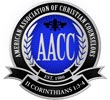What you might expect…
 Stepping out of your comfort zone and away from the busyness of life can be just the ticket to personal renewal and a restored sense of priorities!
Stepping out of your comfort zone and away from the busyness of life can be just the ticket to personal renewal and a restored sense of priorities!
So join us on a mission trip to one of our partnering countries as we minister to children and families. Love the children as we visit orphanages and schools, teach Bible and craft classes, or give needed care at our medical and dental clinics. Demonstrate teeth-brushing to moms and their children. Build benches or school desks. Pray, hand out tracts, or distribute school supplies, food and medicines. There are also opportunities to train pastors, orphanage leaders, school teachers, and staff. Absorb the joy expressed through worship and singing as we participate in local churches, and be amazed at the marvelous faith of other Christian brothers and sisters who trust in an all-sufficient God!
About the Dominican Republic
The Dominican Republic has the second largest economy in the Caribbean. Though long known for sugar production, the economy is now dominated by services. The country’s economic progress is exemplified by its advanced telecommunications and newly constructed metro system. Nevertheless, unemployment, lack of adequate social services, and inconsistent electric service remain serious problems. It is estimated that 30% of the population lives in poverty. This is exacerbated by the challenge of Haitian illegal immigration and the integration of those who are of Haitian descent.
A Unique Symbol
The flag of the Dominican Republic has a large white cross that divides it into four quarters. The white cross symbolizes the struggle of the liberators to bequeath future generations a free nation. The coat of arms pictures a red, white, and blue flag-draped shield with a Bible and cross. Out of all the flags in the world, the depiction of a Bible is unique to the Dominican flag.
Early History
The Arawakan-speaking Taíno Indians inhabited the island of Hispaniola, which they called Quisqueya meaning “mother of the earth,” when Columbus arrived in 1492. Since that time, the Dominican Republic has been conquered and ruled at different times by Spain, France, and Haiti. In 1844, the Dominican Republic established a constitution and government modeled after the United States and declared their independence.
About El Salvador
The Republic of El Salvador is the smallest and most densely populated Central American country. It is crossed by two volcanic mountain ranges and has a narrow coastal region. The capital city is San Salvador. It is the oldest and longest-standing capital in Central America. El Salvador is bounded by Honduras to the north and east, by the Pacific Ocean to the south, and by Guatemala to the northwest. It is, therefore, the only Central American country that lacks a Caribbean coast.
Salvadoran Sports
The national sport of El Salvador is football (known as soccer in the US). Like many other countries, Salvadorans are absolute fans of football. There are local teams and leagues throughout the country. The national professional league is widely appreciated.
Salvadoran Cuisine
The traditional food consists of a mix of Native American cuisine from groups such as the Pipil and Mayan peoples. Many of the dishes are made with maize (corn). There is also heavy use of pork and seafood. El Salvador’s most notable dish is the pupusa, a thick handmade corn or rice flatbread stuffed with cheese and a wide variety of meats, refried beans and loroco.
Social Links




